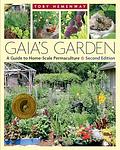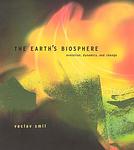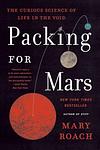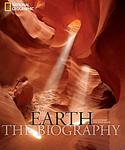The Greatest "Earth" Books of All Time
Click to learn how this list is calculated.
This list represents a comprehensive and trusted collection of the greatest books. Developed through a specialized algorithm, it brings together 300 'best of' book lists to form a definitive guide to the world's most acclaimed books. For those interested in how these books are chosen, additional details can be found on the rankings page.
Genres
Countries
Date Range
Reading Statistics
Click the button below to see how many of these books you've read!
Download
If you're interested in downloading this list as a CSV file for use in a spreadsheet application, you can easily do so by clicking the button below. Please note that to ensure a manageable file size and faster download, the CSV will include details for only the first 500 books.
Download-
1. Gaia by James Lovelock
The book presents a groundbreaking hypothesis that redefines Earth as a self-regulating system, where the biosphere, atmosphere, oceans, and soil function as a single living organism. This entity, named after the Greek goddess of Earth, maintains the conditions necessary for life through complex interactions among its components. The author, an independent scientist, argues that life on Earth actively shapes the environment for its own survival, challenging traditional views of the relationship between organisms and their habitat. The work has sparked widespread debate and research, influencing fields from biology to environmental science, and has profound implications for our understanding of life on Earth and how we approach environmental stewardship.
-
2. The Earth's Biosphere by Vaclav Smil
This book provides a comprehensive overview of the Earth's biosphere, exploring the complexity and resilience of life on our planet. It delves into the intricate relationships between the biosphere's various components, including ecosystems, organisms, and the physical environment, while also examining the impact of human activities on these natural systems. The author synthesizes a vast array of scientific knowledge to present a detailed yet accessible understanding of how the biosphere functions, its evolutionary history, and the critical challenges it faces in the modern era. Through this exploration, the book highlights the importance of sustainable practices to preserve the delicate balance of life on Earth for future generations.
-
3. Seveneves by Neal Stephenson
In this science fiction epic, humanity faces an existential crisis when the moon suddenly explodes, triggering a catastrophic chain of environmental disasters on Earth. With only two years before the planet becomes uninhabitable, nations unite to launch a daring plan to preserve human life by sending a select group of survivors into orbit. The narrative spans thousands of years, chronicling the efforts of these initial survivors to maintain the human race in space, the political and social challenges they face, and the eventual attempt by their far-future descendants to return to a drastically changed Earth. The story is a sweeping examination of human resilience, ingenuity, and the enduring quest for survival against insurmountable odds.
-
4. Packing For Mars by Mary Roach
"Packing for Mars" explores the curious and often humorous aspects of space travel, focusing on the day-to-day life of astronauts and the bizarre challenges they face in zero gravity. The book delves into the nitty-gritty of space exploration, from the complications of personal hygiene and bathroom logistics to the psychological and physical trials of living in confined, alien conditions far from Earth. Through interviews with astronauts, scientists, and mission staff, the narrative reveals the less glamorous but utterly fascinating side of space travel, shedding light on human resilience and ingenuity in the most extreme environments.
-
5. Earth by Iain Stewart, John Lynch
This book provides a comprehensive exploration of the Earth's extraordinary history and the complex processes that have shaped it over billions of years. Through vivid descriptions and insights from scientific discoveries, the text delves into the dynamics of the planet's geology and climate, examining how these factors have influenced the evolution of life and continue to affect our present environment. The narrative also highlights the interconnectivity of Earth's ecosystems and the impact of human activity on its ongoing geological and biological transformations.
Reading Statistics
Click the button below to see how many of these books you've read!
Download
If you're interested in downloading this list as a CSV file for use in a spreadsheet application, you can easily do so by clicking the button below. Please note that to ensure a manageable file size and faster download, the CSV will include details for only the first 500 books.
Download



